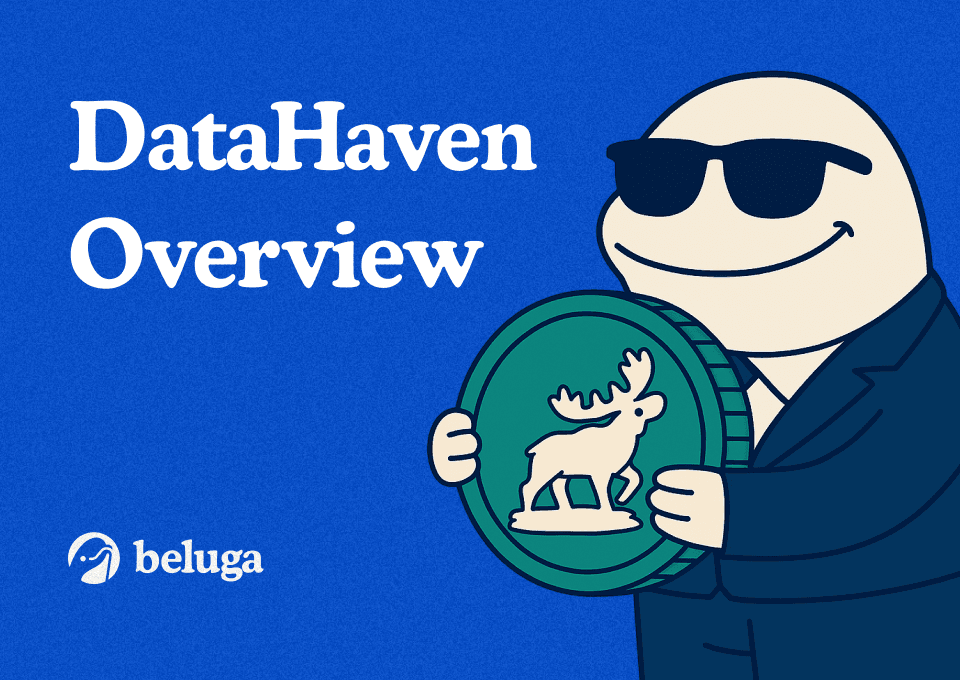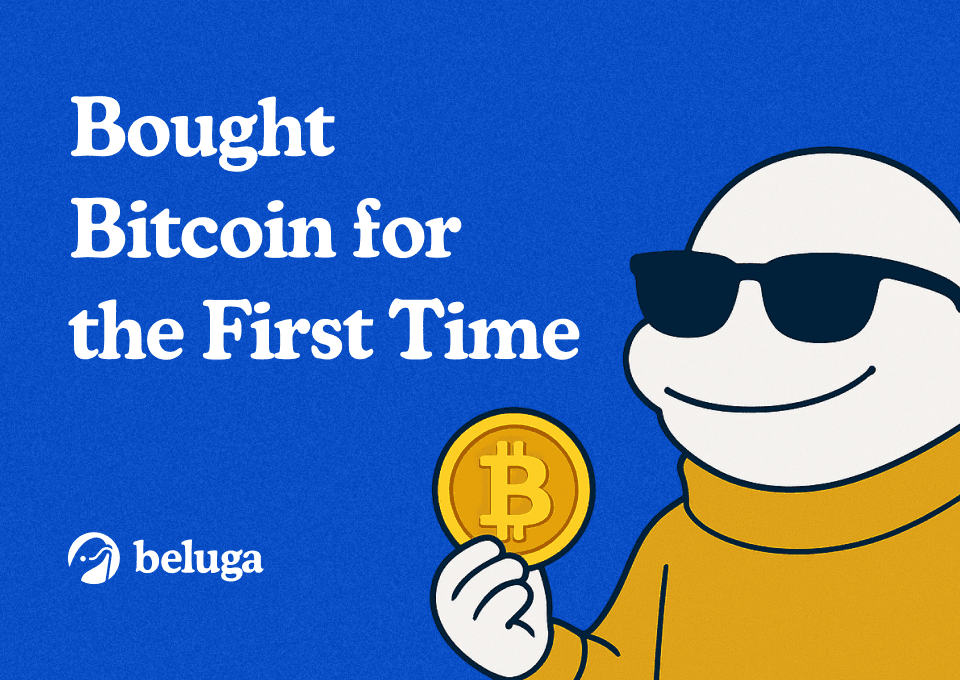Beyond Filecoin & Arweave: Why DataHaven Deserves Attention!
By Pratik Bhuyan Updated June 19, 2025

Summary
- DataHaven distinguishes itself by combining AI-native storage, end-to-end encryption, and Ethereum-aligned economic security into a unified data infrastructure.
- It supports enterprise-grade use cases with predictable pricing, strong compliance tools, and tamper-proof audit trails that connect onchain storage with real-world legal frameworks.
- Unlike traditional storage networks, DataHaven enables autonomous data marketplaces where AI agents can monetize, trade & verify datasets directly.
Introduction
When you step back and survey today’s decentralized storage landscape, it starts to feel like speed dating: every protocol vying to be “the one” for your data. You’ve got Arweave, the open-market vibes of Filecoin, the peer-to-peer simplicity of IPFS, and a host of hot newcomers (Storacha, Storj, Sui’s Walrus) all trying to win your heart (and your gigabytes). So, where does DataHaven fit in? Let’s look at the key players and how DataHaven is carving out its own niche.
Arweave: The “Permaweb” Architect
- What it does: Block-weave storage that guarantees your data lives on forever, with a one-time up-front fee.
- Why people love it: Ideal for NFT metadata, on-chain blogs (Mirror), and any archive you never want to lose.
- Where it stumbles: That steel-forged permanence gets pricey at scale. Also, you're required to pay for permanent storage, even if you delete the file or no longer need access to it, the cost is incurred regardless.
Filecoin: The Decentralized Marketplace
- What it does: A token-incentivized marketplace where storage providers compete on price, reliability, and geography.
- Why people love it: Massive global capacity, backed by Protocol Labs, with native IPFS integration for seamless content addressing.
- Where it stumbles: Deal negotiation can feel like haggling at a bazaar; latency varies, and setting up infrastructure can be non-trivial.
IPFS: The Lightweight Sharer
- What it does: A pure content-addressing protocol for peer-to-peer file sharing, independent of any blockchain.
- Why people love it: It’s easy, ubiquitous across dApps, and perfect for static front-ends or ad-hoc file exchange.
- Where it stumbles: IPFS faces challenges with speed, storage redundancy, and security due to its questionable decentralized nature, leading to slower data access, inefficient duplication, and difficulties in moderating malicious content. These issues can hinder its suitability for real-time or large-scale applications without strong management strategies.
Storacha & Walrus: The New Innovators
- Storacha: Tailored as an AVS (Autonomous Verifiable Service) on Filecoin/EigenLayer for rollups and Ethereum-aligned ecosystems. Fast and modular, but still finding its feet.
- Walrus (on Sui): Mysten Labs’ bet on Sui-native storage for game assets, NFTs, and LLM workflows–in theory, super-efficient, but currently Sui-only and early stage.
Enter DataHaven: Bridging AI, Web3 & Enterprise
While everyone else is solving “how do I store data?” DataHaven asks, “What if your storage layer could think like an AI agent, flex like a cloud, and yet behave like a blockchain?”
AI-First Storage
DataHaven is built from the ground up to host AI models and data workflows: encrypted model weights, tamper-proof chat logs, and fine-grained, onchain access controls via its EVM-compatible execution layer. Think of your personal AI assistant storing sensitive health data fully encrypted on your device, sharing it only when you allow, so no cloud provider ever sees the plaintext.
Autonomous Data Marketplaces
Why let Big Tech monetize your training data? DataHaven turns datasets into tokenized assets that can be tracked and verified. It uses special proofs (Merkle Trees) to show where the data came from and stores this information securely. This setup allows data creators to earn money from their work through automated agreements called smart contracts. Even AI systems can autonomously bid for, license, or trade data. It’s definitely a level-up from Filecoin’s storage-only market, because here, data itself becomes a programmable asset.
 Source: DataHaven
Source: DataHaven
Real-World Assets & Beyond
From tokenized bonds and real estate deeds to carbon credits and fine-art provenance, DataHaven’s smart contract primitives make it easy to store compliance docs, audit trails, and proof-of-ownership records; then tie them directly into DeFi flows or real world legal frameworks.
Privacy by Design
Storing sensitive chat logs, health records, or corporate knowledge bases on “trusted” clouds can invite breaches. On DataHaven, everything is end-to-end encrypted client-side; Storage Providers see only ciphertext. Combined with Trusted Execution Environments (TEEs) or local LLM inference, you can run private AI workflows where user data never leaks to centralized servers.
Shared Economic Security via ETH
Most decentralized storage networks rely on their own native tokens for security; Arweave, Filecoin, Storacha, and others each use separate mechanisms to incentivize honest behavior. But this fragmentation introduces a risk: your smart contracts may be secured by Ethereum’s immense economic weight, yet your storage layer rests on a smaller, more vulnerable market cap. That imbalance becomes a weak link, especially in high-stakes or enterprise-grade deployments.
DataHaven sidesteps this risk by building on EigenLayer and inheriting Ethereum’s economic security. This means your storage and your compute live under the same trust assumptions – no need to trust a different token, no need to worry about mismatched incentive systems. For teams deploying on Ethereum or its L2s, it’s a natural and secure extension of their existing stack.
Immutable Provenance & Governance
Whether it’s deepfake-resistant media, AI-summarized news, or DAO budgets, you need a tamper-proof audit trail. DataHaven logs each asset’s root hash onchain and cryptographically links every update, giving you an unbroken history of content creation and modification.
Enterprise-Grade UX, Predictable Pricing
Unlike token volatility in Filecoin or the one-and-done fee of Arweave, DataHaven offers pay-as-you-go flexibility with transparent $/GB pricing, no surprises & no hidden retrieval fees. Its dashboard and SDKs aim to make spinning up storage as easy as launching a cloud bucket.
The Bottom Line: Why DataHaven Matters
There’s no doubt that the leading storage protocols are powerful in their own right. But decentralized storage isn’t just about where data lives now, it’s about how it integrates with the future of apps. While Arweave anchors history, Filecoin scales archives and IPFS serves enterprises, DataHaven targets the next wave:
A world where AI agents, DeFi protocols, and smart contracts need a unified, verifiable home for their data.
As the next generation of dApps takes shape, DataHaven is quietly positioning itself at the centre of it all; and with their recent announcement of their fair launch strategy as well as compelling tokenomics, the pieces are falling into place for a protocol that’s fast becoming one to watch.
Ready to explore more? Check out DataHaven’s Litepaper, and don’t forget to join their Discord and Twitter for the latest updates!
Disclaimer: Beluga has a marketing partnership with DataHaven.
Join the Beluga Brief
Dive deep into weekly insights, analysis, and strategies tailored to you, empowering you to navigate the volatile crypto markets with confidence.
Never be the last to know
and follow us on X








